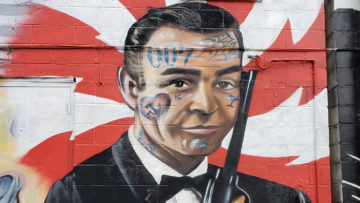Colin Burnett in The Common Reader:
 To understand the origins of any franchise, look first to rights—who owns the intellectual property, how it is managed, and where the revenue generated from its exploitation is set to flow.
To understand the origins of any franchise, look first to rights—who owns the intellectual property, how it is managed, and where the revenue generated from its exploitation is set to flow.
In February 1952, Ian Fleming (1908-1964), a former Naval Intelligence officer and manager of the foreign desk of the Kemsley newspaper group (including The Sunday Times), writes the first in a series of spy novels. He cribs the central character’s name from a 1936 book entitled The Birds of the West Indies. Its author: James Bond. But who the fictional character James Bond would become, what international schemes he would solve, and what kind of life he would lead are not the only matters occupying Fleming’s thoughts. He wants his novels to sell, quickly, and for his young family to reap the financial rewards.
For that, he will need to carefully manage his new property. In September 1952, the United Nations passes the Universal Copyright Convention which decrees that any work which carries the symbol © will retain copyright control in all contracted states. In response to the Convention, Fleming moves swiftly to incorporate himself. He purchases a small theatrical production firm, Glidrose Productions, Ltd., and turns over all rights to his works.
This is where the Bond franchise truly begins.
More here.
